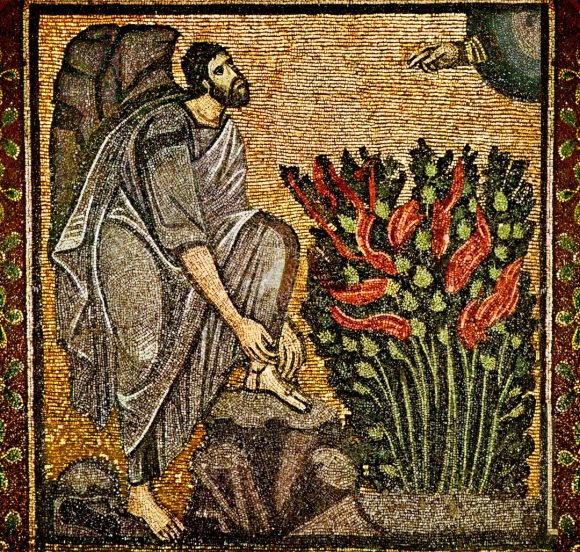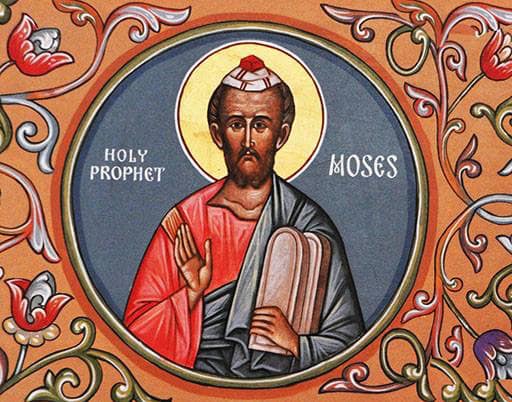Today we liturgically recall the Holy Great Prophet Moses, revered as a saint in the Catholic Church. His commemoration is mostly recalled by Eastern Christianity though he is list among the holy people in the Latin Church. Moses died sixteenth centuries before Jesus Christ, having lived for some 120 years.
The Troparion for Saint Moses reads:
O prophet Moses, you reached the summit of virtues. By this you came to see the glory of God. You received the tablets of the grace-giving Law and became the crown of prophets and a mystery of piety; for you carried grace deep within you.
The Prophet Moses, whose name means “one who draws forth,” or “is drawn from,” that is, from the water –was known as the one who spoke to Spoke, and even saw him. Moses also has the very rare and interesting title of “God seer.” Many scholars will say Moses is the model for people of faith: he “was the pinnacle of the lovers of wisdom, the supremely wise lawgiver, the most ancient historian of all.”
Fr Petras writes,
On Mt. Horeb the great prophet Moses saw God in the bush that burned without being consumed, and God revealed his Name to him, “I am who I am” (Exodus 3:14). It is this Name of God that we invoke in the Anaphora of St. Basil the Great, “O Eternal Being ….” On Mt. Sinai God revealed a portion of his glory to Moses when he gave him the ten commandments. On Mt. Tabor, Moses stood with Elijah to witness the glory of God revealed though Jesus. Today we honor this Great Prophet who has led us into the presence of God, who led his people into the land promised by God, who today leads us to an understanding of God, essential Being, the Creator of all that is, the Cause of all that is good and the Lover of each and every person, “In him we live and move and have our being” (Acts 17:28).

 Today we celebrate St Moses the Prophet, according to tradition was born a Jew in Egypt at a time when the Jewish population was enslaved to the Egyptians. Moses was abandoned by his mother only to be adopted by the Egyptian royal family. Eventually Moses was called by God to be a leader to the Jewish people, interceding for them before Pharaoh, demanding their liberation, “Let my people go!” What followed is one of the earliest recorded campaigns of mass unarmed resistance in history. Trusting not in force of arms, but in the Lord, the Jewish people prayed, and God delivered them. They won their freedom, but it was not given easily. They marched out of Egypt in search of a promised land, but Pharaoh and his army followed, only to be once again routed by the work of God.
Today we celebrate St Moses the Prophet, according to tradition was born a Jew in Egypt at a time when the Jewish population was enslaved to the Egyptians. Moses was abandoned by his mother only to be adopted by the Egyptian royal family. Eventually Moses was called by God to be a leader to the Jewish people, interceding for them before Pharaoh, demanding their liberation, “Let my people go!” What followed is one of the earliest recorded campaigns of mass unarmed resistance in history. Trusting not in force of arms, but in the Lord, the Jewish people prayed, and God delivered them. They won their freedom, but it was not given easily. They marched out of Egypt in search of a promised land, but Pharaoh and his army followed, only to be once again routed by the work of God.